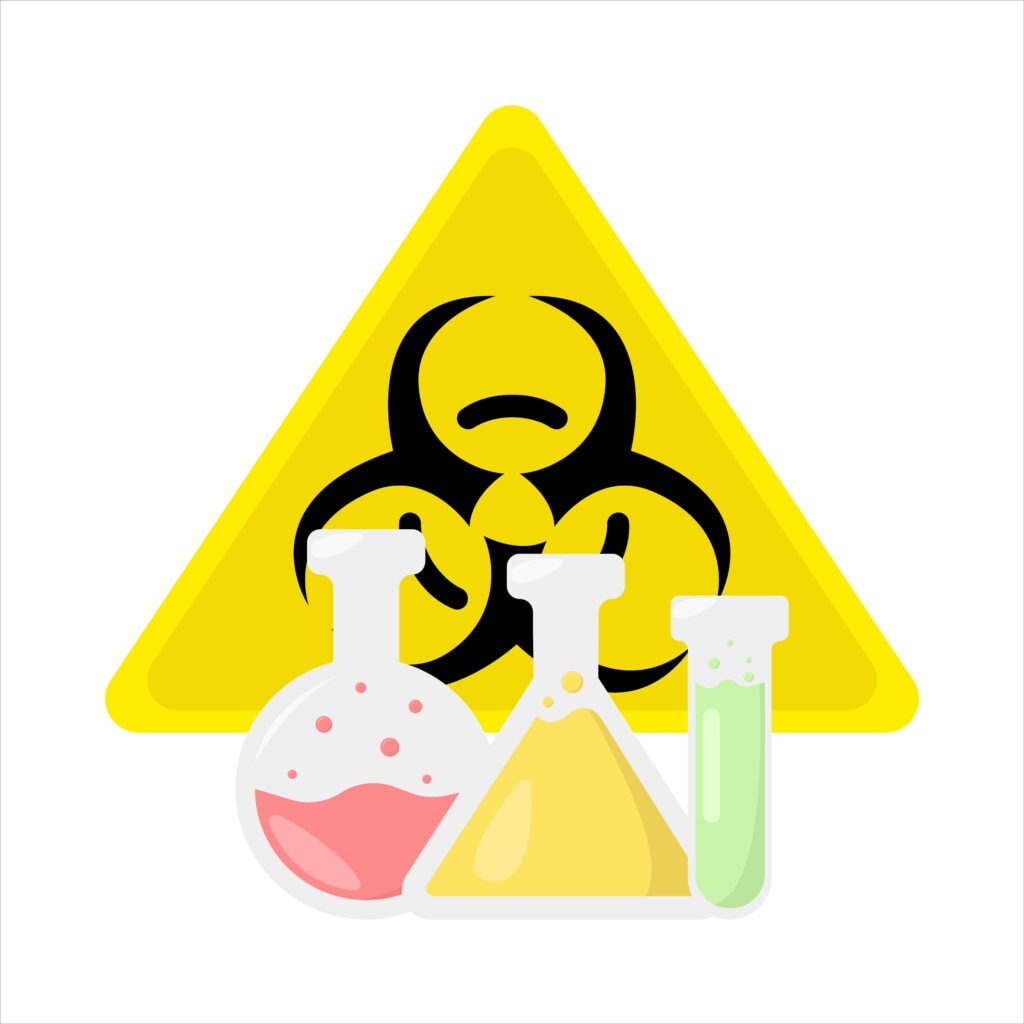Chemistry is often seen as a complex subject, with its formulas and equations. But who said learning chemistry has to be boring? In fact, it can be quite the opposite! By incorporating games into your study routine, you can make learning chemistry fun and engaging. Not only will you have a great time with your school buds, but you’ll also enhance your understanding of this fascinating subject. So, put on your safety goggles and get ready for some chemistry games that will ignite your curiosity!
5 Benefits of using games to learn chemistry
Learning through games offers numerous benefits that can enhance your understanding of chemistry. Here are five key advantages of incorporating games into your study routine:
- Engagement: Games make learning chemistry more interactive and engaging. Instead of passively reading textbooks or listening to lectures, you actively participate in the learning process. This hands-on approach keeps you focused and motivated to explore the subject further.
- Retention: When you play chemistry games, you reinforce what you’ve learned in a fun and memorable way. By actively applying concepts and solving problems, you’ll retain the information better and have an easier time recalling it during exams.
- Critical thinking: Chemistry games often require problem-solving skills and critical thinking. Whether you’re deciphering puzzles or conducting virtual experiments, you’ll develop a sharp analytical mind that will benefit you not just in chemistry, but in various other subjects as well.
- Collaboration: Many chemistry games can be played with friends or classmates, promoting teamwork and collaboration. By working together, you can exchange ideas, discuss concepts, and deepen your understanding of chemistry. Learning becomes a social activity, making it more enjoyable and rewarding.
- Application: Chemistry games often simulate real-world scenarios where you can apply your knowledge. This practical application helps bridge the gap between theory and practice, making your learning experience more meaningful and relevant.
Safety first before playing chemistry games

- Protective gear: Always wear safety goggles, gloves, and lab coats when handling chemicals or conducting experiments. These protective gear will shield you from any potential hazards.
- Well-ventilated area: Ensure that you play chemistry games in a well-ventilated area to prevent the accumulation of harmful fumes. Open the windows, use fans indoors, or conduct experiments outdoors when possible.
- Proper disposal: Dispose of chemicals and waste materials responsibly. Follow your school’s guidelines or consult with your teacher to ensure proper disposal methods are followed.
- Adult supervision: If you’re a beginner or playing chemistry games that involve complex procedures, always have an adult supervisor present. They can guide you through the process and ensure your safety.
While chemistry games can be exciting, it’s important to prioritize safety when conducting any experiments or handling chemicals. Here are a few safety precautions to keep in mind:
By following these safety precautions, you can enjoy chemistry games while staying safe and minimizing any potential risks.
5 Chemistry games for beginners
If you’re new to chemistry or just starting your journey, these games are perfect for you. They will introduce you to basic concepts and make learning chemistry a breeze:
- Element Bingo: Create bingo cards with elements instead of numbers. As the caller announces an element, mark it on your card. The first person to form a line or complete the entire card wins! This game helps familiarize you with the periodic table and the properties of different elements.
- Chemical Charades: Act out chemical reactions, elements, or laboratory equipment while others guess what you’re representing. This game not only improves your knowledge of chemistry but also enhances your communication and acting skills.
- Molecular Memory: Create pairs of cards with illustrations of molecules or chemical formulas. Flip them face down and take turns flipping two cards at a time, trying to find matching pairs. This game sharpens your memory and helps you recognize different molecular structures.
- Acid-Base Tug of War: Divide into two teams and assign each team to either acid or base. Using water as the medium, each team tries to pull the tug-of-war rope towards their side by adding acid or base solutions. This game reinforces the concept of acids and bases and their reactions.
- Chemical Treasure Hunt: Hide various chemical substances around your school or home. Provide clues that lead to the locations of these substances. As you find each substance, identify its properties and discuss its applications. This game encourages exploration and hands-on learning.
5 Intermediate chemistry games
Once you have a solid foundation in chemistry, these intermediate games will challenge and expand your knowledge:
- Reaction Relay: Divide into teams and set up stations with different chemicals and equipment. Each team member performs a specific step of a chemical reaction and passes it on to the next team member. The team that completes the reaction correctly in the shortest time wins! This game tests your understanding of reaction mechanisms and coordination within a team.
- Periodic Table Scavenger Hunt: Create a list of questions related to the periodic table, such as element properties or atomic numbers. Search for the answers within the periodic table and write them down. The first person or team to correctly answer all the questions wins! This game encourages you to explore the periodic table in-depth and improve your knowledge of element properties.
- Chemical Pictionary: Similar to the classic game of Pictionary, but with a chemistry twist! Draw chemical reactions, laboratory equipment, or molecular structures while others guess what you’re illustrating. This game hones your drawing skills while reinforcing your understanding of chemistry concepts.
- Molecule Building Challenge: Using molecular model kits or online tools, race against the clock to build given molecules. The player or team that accurately constructs the most molecules within the time limit wins! This game enhances your spatial reasoning skills and helps you visualize molecular structures.
- Chemistry Trivia Quiz: Create a trivia quiz with questions covering various topics in chemistry. Assign point values to different questions based on difficulty. Compete with your friends or classmates to see who can answer the most questions correctly. This game tests your knowledge across different areas of chemistry and encourages friendly competition.
5 Advanced chemistry games
If you’re up for a challenge and want to dive deeper into the world of chemistry, these advanced games will push your limits:
- Lab Escape Room: Create an escape room scenario where players must solve chemistry-related puzzles and clues to “escape” the lab. This game combines problem-solving, critical thinking, and teamwork to test your advanced knowledge of chemistry concepts.
- Chemical Synthesis Challenge: Given a set of reactants and desired products, devise a step-by-step synthesis pathway. Consider reaction mechanisms, stoichiometry, and reactivity to create the most efficient synthesis. This game challenges your understanding of organic chemistry and strategic thinking.
- Quantum Chemistry Simulation: Use computer software or online simulations to explore quantum chemistry concepts. Simulate molecular orbitals, electronic transitions, or molecular dynamics to deepen your understanding of advanced topics in chemistry. This game allows you to visualize and interact with complex chemical phenomena.
- Chemical Reaction Mastermind: Similar to the classic game of Mastermind, but with chemical reactions! One player creates a secret chemical reaction, while the others try to deduce the reactants and products by asking questions. This game sharpens your deductive reasoning skills and challenges your knowledge of reaction mechanisms.
- Chemistry Olympics: Organize a chemistry-themed Olympics event with various challenges and competitions. Examples include titration races, density determination contests, or flame test accuracy competitions. This game tests your practical skills, theoretical knowledge, and ability to perform under pressure.
5 Chemistry games for teams

Chemistry is often a collaborative subject, and these games are designed to be played in teams, fostering communication and teamwork:
- Chemical Jeopardy: Create a chemistry-themed Jeopardy game with different categories and point values. Divide into teams and take turns choosing a category and point value. Answer the question correctly to earn points for your team. This game encourages teamwork, knowledge sharing, and friendly competition.
- Lab Wars: Divide into teams and compete to complete a series of laboratory tasks accurately and efficiently. Tasks can include measuring precise volumes, performing titrations, or solving analytical chemistry problems. The team that successfully completes all tasks first wins! This game tests your practical skills, time management, and ability to work as a team.
- Chemical Puzzle Hunt: Create a series of chemistry-related puzzles and clues that lead to the next puzzle. Divide into teams and race to solve all the puzzles and reach the final solution. This game encourages problem-solving, communication, and collaboration between team members.
- Chemical Tower Building: Provide teams with materials like toothpicks and marshmallows, and challenge them to build the tallest tower using only these items. The tower must be stable and able to hold a specific weight. This game promotes teamwork, creativity, and practical applications of chemistry principles.
- Chemical Debate: Divide into teams and debate controversial topics in chemistry, such as the use of chemical additives or the impact of certain chemicals on the environment. Each team presents arguments and counterarguments, backed by scientific evidence. This game enhances your research and presentation skills while encouraging critical thinking and teamwork.
5 DIY chemistry games for hands-on learning
If you enjoy hands-on learning and experimenting, these DIY chemistry games are perfect for you. Get ready to roll up your sleeves and explore the wonders of chemistry:
- Volcano Eruption: Create a mini volcano by combining baking soda, vinegar, and food coloring. Watch as the mixture erupts, simulating a volcanic eruption. This game demonstrates the reaction between an acid (vinegar) and a base (baking soda) and introduces you to the concept of chemical reactions.
- Glowing Slime: Make your own glow-in-the-dark slime using borax, glue, and fluorescent paint. Experiment with different ratios and colors to create various types of slime. This game allows you to explore polymer chemistry and the properties of materials.
- Rainbow Density Column: Layer different liquids with varying densities, such as water, oil, and syrup, in a transparent container. Observe as the liquids form distinct layers based on their densities. This game introduces you to the concept of density and immiscible liquids.
- Crystal Growing: Dissolve a specific amount of salt or sugar in hot water and let the solution cool. As the solution cools, crystals will form. Experiment with different variables like temperature or concentration to observe the impact on crystal size and shape. This game explores the process of crystallization and the formation of solid structures.
- Invisible Ink: Create your own invisible ink using lemon juice or baking soda solution. Write secret messages on paper and reveal them by heating the paper or applying a specific reagent. This game introduces you to the concept of chemical reactions and the invisible ink phenomenon.
Chemistry resources for virtual learning
If you’re unable to gather with your school buds in person, these online chemistry games are perfect for virtual learning and remote study sessions:
- Chemix: This online platform allows you to simulate and perform various chemistry experiments virtually. Explore different reactions, test hypotheses, and observe the outcomes in a safe and interactive environment.
- Compound Chem: Test your knowledge of chemistry through beautiful infographics from this website. Learn about different compounds, their structures, and their uses.
- Chemical Detective: Step into the shoes of a detective and solve chemistry-related mysteries on this website. Use your knowledge of chemical reactions and properties to crack the case.
- Chem Collective: Experience a virtual chemistry lab environment where you can perform experiments and explore different reactions. This interactive platform allows you to conduct experiments safely and learn through hands-on experience.
- The Periodic Table Game: Test your knowledge of the periodic table and element properties through this interactive game from Fun Brain. Match elements with their correct properties and earn points as you progress.
Conclusion
Alright, let’s break it down! Chemistry might seem like a tough cookie at first, but toss in some cool games, and it becomes a blast! Think of these games as the secret sauce to making those tricky topics way easier and way more fun. Whether you’re just starting out or you’re already a chemistry champ, there’s a game for every level. And hey, teaming up with friends? Even better. Just remember, whenever you’re mixing stuff up or trying out experiments, safety first! So, next time you think about those atoms and reactions, imagine them as part of a game. Ready to play and learn? Let’s dive into the world of chemistry for fun!

